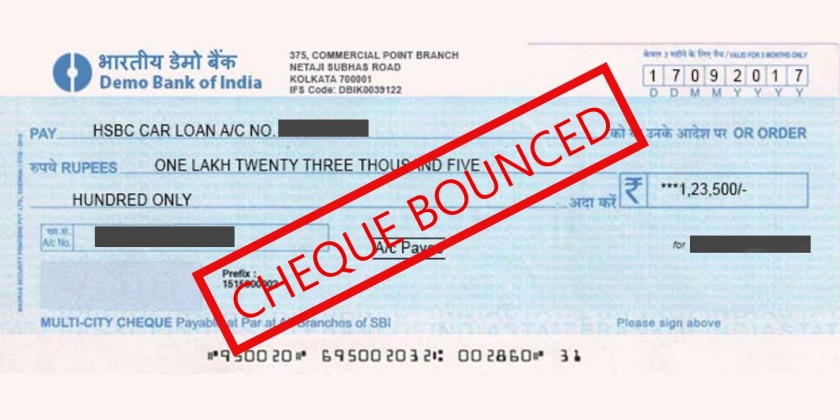Tax fraud. It’s more than just a lapse in judgment. There are several types of tax fraud, all with penalties, and it’s easy for a minor issue to spin out of hand without adequate assistance and supervision. The Internal Revenue Service takes filing a fraudulent tax return or other documents very seriously. If its examination reveals significant information, civil cases may be referred to criminal tax investigators. Arrests and tax-related criminal charges may result.
So it’s critical not to take a tax fraud charge lightly, and perhaps this will help you better grasp it.
What Is Tax Fraud?
Tax fraud is more than a mistake; it is a deliberate attempt to avoid paying taxes. The cornerstone of a tax fraud claim is that the accused acted willfully or purposefully in order to avoid paying taxes. Failure to file an income tax return or preparing a fake return are two examples.
Although the penalty for a single error may appear serious, the penalties for tax fraud convictions are far worse. Failure to file can result in up to a year in prison and a $100,000 punishment while attempting to evade taxes can result in up to five years in prison and a $250,000 fine.
How Does the IRS Determine Tax Fraud?
According to the IRS, tax fraud is defined as “the deliberate and significant submission of false statements or fake documents in connection with an application and/or return.” To reach this conclusion, investigators will seek any signs of fraud, including but not limited to:
- Income underreporting
- Using a fictitious Social Security number
- Document falsification
- Willfully omitting to pay taxes
If these frequent indicators are missing, the IRS usually thinks that an unintended error happened as a result of negligence. Though this usually does not result in criminal charges for tax fraud, errors with your taxes can result in an accuracy-related penalty equal to 20% of the underpayment.
Anyone could be caught off guard if they are given this penalty, which is why it’s critical to double-check all tax information before submitting it to the IRS. It’s also crucial to remember that you have the right to an attorney, especially if you believe you’ve been charged with tax fraud in error.
Understandiing Tax Fraud
Tax fraud is defined as the intentional misrepresentation or omission of data on a tax return. Taxpayers in the United States have a legal obligation to submit a tax return voluntarily and to pay the correct amount of income, employment, sales, and excise taxes.
Failure to do so by misrepresenting or withholding information is illegal and amounts to tax fraud. The Internal Revenue Service Criminal Investigation (CI) unit investigates tax fraud. Tax fraud is said to be evident when the taxpayer is shown to have:
- He purposefully did not file his income tax return.
- He misrepresented the true situation of his affairs in order to fraudulently claim tax deductions or credits.
- He purposefully neglected to pay his tax debt.
- I prepared and submitted a bogus return.
- Knowingly omitted to report all money received
A company that commits tax fraud may:
- Willfully failing to file payroll tax returns
- Deliberately neglect to report some or all cash payments made to employees.
- Employ an outside payroll agency that does not report funds to the IRS.
- Failing to deduct federal income tax or FICA (Federal Insurance Contributions) from employee paychecks
- Failure to report and pay any payroll taxes withheld.
Tax Fraud vs. Negligence or Avoidance
Claiming an exemption for a nonexistent dependent to minimize tax liabilities, for example, is clearly fraud, whereas applying the long-term capital gain rate to a short-term earning may be investigated further to establish whether it is negligence. Although errors attributed to negligence are unintentional, the IRS may nonetheless punish a negligent taxpayer with 20% of the underpayment. Tax fraud has been committed by celebrities all across the world, including Lionel Messi.
Given that the United States tax system is a complex compilation of tax rules and laws, many tax preparers are prone to make foolish mistakes.
Tax fraud is not the same as tax avoidance, which is the legitimate use of tax loopholes to decrease one’s tax liabilities. Although tax evasion is not a direct violation of the law, tax authorities frown on it since it may undermine the general spirit of tax law.
Types of Tax Fraud
#1. Willful Failure To Pay Income Taxes
According to the Internal Revenue Service, approximately one out of every six taxpayers fails to comply with the tax rules in some way. If the federal agency’s estimate is correct, the number of tax-related arrests should be substantially larger than it is presently.
The IRS distinguishes between income tax fraud and negligence, which is why not every sixth person you know is facing criminal prosecution.
Tax fraud is the deliberate attempt to avoid paying taxes or to defraud the IRS. Tax fraud occurs when a person or company willfully engages in one of the following:
- Intentionally fails to pay owing taxes
- Failure to file a federal income tax return on purpose
- Failure to report all earnings
- False or fraudulent claims are made
People make errors.
It goes without saying that the tax codes are long and complicated, and at times practically impossible to understand—even for accountants who are hired to interpret them. In this regard, the IRS accepts that mistakes do occur and that people may assume A about the code when B actually applies.
The IRS will usually presume you made an honest error on your returns if there is no proof of fraud or other criminal behavior. However, it is about the extent of the agency’s readiness to forgive, as even accidental errors can result in a 20% penalty to the taxpayer.
There are certainly instances where the IRS believes an unintended error constitutes a willful attempt to deceive. In some cases, the taxpayer may face severe penalties, including prison time. Many people will seek the assistance of skilled tax law attorneys to help them handle conflicts with the IRS. Negotiations in certain circumstances can result in a resolution of the issue without the need for criminal charges; in others, aggressive representation in court is required.
#2. Filing a frivolous tax return
One of the many things that make the United States great is the right to voice our thoughts, even when those opinions contradict official government policy. People can, for example, argue that the federal income tax is unconstitutional and breaches many amendments to the Constitution.
People are free to argue, but they are not allowed to refuse to pay their income taxes. Because some of those who believe that the income tax is illegitimate, immoral, and unconstitutional is articulate and persuasive, some people succumb to temptation and file returns with “unreasonable and absurd assertions” to avoid paying the taxes they owe, according to the IRS.
Trouble can start when you file that return.
No matter how fair the argument sounded in the book or website you visited, the IRS has almost certainly heard it before, taken it to court, and won. In fact, the sanctions for those who waste the court’s time with “frivolous arguments” are becoming stiffer.
You can argue that only federal government employees are subject to the income tax, that filing a return is voluntary, or that Federal Reserve notes are not income—the anti-tax arguments go on and on—but the bottom line is that you must file an accurate income tax return.
Other Types of Tax Fraud
The IRS’s Criminal Investigation (CI) unit investigates tax fraud, tax-related money laundering, and illicit revenues earned by legitimate businesses through a variety of fraudulent means. Among the offenses pursued by CI are:
#1. Employee and payroll tax evasion:
Payroll tax problems are rather common. The IRS pursues a variety of tactics, including underreporting workforce numbers, collecting payroll taxes (federal unemployment, social security, and withholding taxes) and failing to pay them over to the IRS, and paying employees in cash under the table.
Most people are aware that submitting a fake income tax return might result in tax litigation. Individuals and tax preparers commit refund fraud and, in certain cases, identity theft to get an unearned tax refund. This is also the domain of phony deductions, exemptions, and business costs.
#2. Abusive tax schemes:
US taxpayers who fail to file regulatory reports such as FBAR and FATCA may face a criminal tax inquiry by the IRS. With the growth of secrecy countries, wealthy individuals may seek the greater anonymity provided by offshore tax havens. The boundary between an abusive tax plan and a tax alternative employed by an unknowing person attempting to make lawful use of offshore tax resources is frequently blurred.
The IRS may become involved if you commit tax fraud or evasion. But keep in mind that the IRS is currently underfunded and understaffed. The intention is a key part of any tax offense. Working out a civil arrangement with a delinquent taxpayer takes less time and money than attempting to convict that same taxpayer of a criminal infraction.
Tax Preparer Fraud
The IRS often charges tax preparers with crimes. Tax fraud is a serious offense for both the accused and their clients, especially if the client knew or should have known that a fake tax return was filed on their behalf. Here are two recent IRS prosecutions:
A lady from Charlotte, North Carolina, admitted to “aiding and assisting in the preparation of a fake tax return.” The woman admitted to the most prevalent types of tax preparation fraud, including inflating expenses, fabricating false deductions, and claiming nonexistent school credits. The amount of tax lost to the IRS as a result of her actions is estimated to be $500,000, and she faces up to three years in prison, probation, restitution, and penalties.
A Rhode Island man likewise suffered similar consequences for his propensity of filing fake tax returns between 2011 and 2015. The accused, like the North Carolina tax preparer, attempted to increase his client’s refund checks by inventing fraudulent deductions and inflating expenses. He also inflated charitable contributions and forged house mortgages and energy-improvement deductions.
On a bigger scale, the IRS shut down a pair of Southern Florida tax preparers, who now face injunctions and the permanent loss of their careers for their role in defrauding the IRS and their clients. A tax preparation business used the same types of strategies outlined above to inflate deductions and expenses on their client’s tax returns in order to maximize the amount of the refund their client would receive. When the refund arrived, the tax preparers pocketed the excess without the victims’ knowledge.
Steps to take for victims of tax fraud
If you or someone you know becomes a victim of tax-related identity theft, here are some precautions you can take:
- Contact the IRS right away. Respond immediately if you receive a notice. You can also call the IRS at 800-908-4490 to get your tax account and social security number secure.
- Fill out and return an IRS Identity Theft Affidavit. IRS Document 14039, Identity Theft Affidavit, is a fillable form available on the IRS website that should be completed if you attempt to e-file your taxes and they are rejected due to duplicate filing. Fill it out, print it, attach it to your paper tax return, and mail it all to the IRS.
- Continue to pay your taxes. Even if you suspect tax-related identity theft, continue to pay your regular taxes and file your tax return on paper.
- Please contact the FTC. Once you’ve done everything you can to begin working with the IRS, contact the FTC and file a complaint through identitytheft.gov.
- Put a fraud warning on your credit file. To place a fraud alert on your credit report, contact one of the three major credit reporting firms (Equifax, Experian, or TransUnion).
Unfortunately, even after you’ve taken all of these precautions, fraudsters can still steal and use your identity – and new tax scams emerge every year.
What Individuals Should Know About Tax Fraud
Tax fraud is a major problem, not just because it is morally wrong to not pay your fair share of taxes, but also because it is unlawful. If you try to defraud the IRS or other tax authorities, you could face severe penalties or possible prison time.
Remember that paying less than what you legally owe is not the same as making legal, smart tax-reduction decisions, such as increasing retirement contributions to tax-deductible accounts.
When it comes time to file your taxes, you may want to consult with a tax professional or use tax software to help you obtain as many lawful tax deductions and tax credits as possible. However, avoid working with someone who encourages you to commit fraud, such as underreporting your income.
How Serious is Tax Fraud?
Tax fraud is a serious offense that can result in fines and prison sentences. Individuals face a maximum punishment of $100,000 and a five-year prison sentence for tax fraud.
Can You Go to Jail for Not Paying Taxes?
There is no such thing as a “debtor’s prison” for persons who have not paid their taxes. If the IRS suspects you of fraud or evasion, it may levy civil fraud penalties against you. These fines are calculated at 75% of the tax payable.
Related Articles
- INCOME TAX: Overview, e Filing, and Calculator
- WHAT IS AN INCOME Tax: Definition, Rate, and Types
- PROFESSIONAL NEGLIGENCE: Definition, Types, Examples, and Guide
- WHAT IS WIRE FRAUD? Types, Examples, and Penalties






